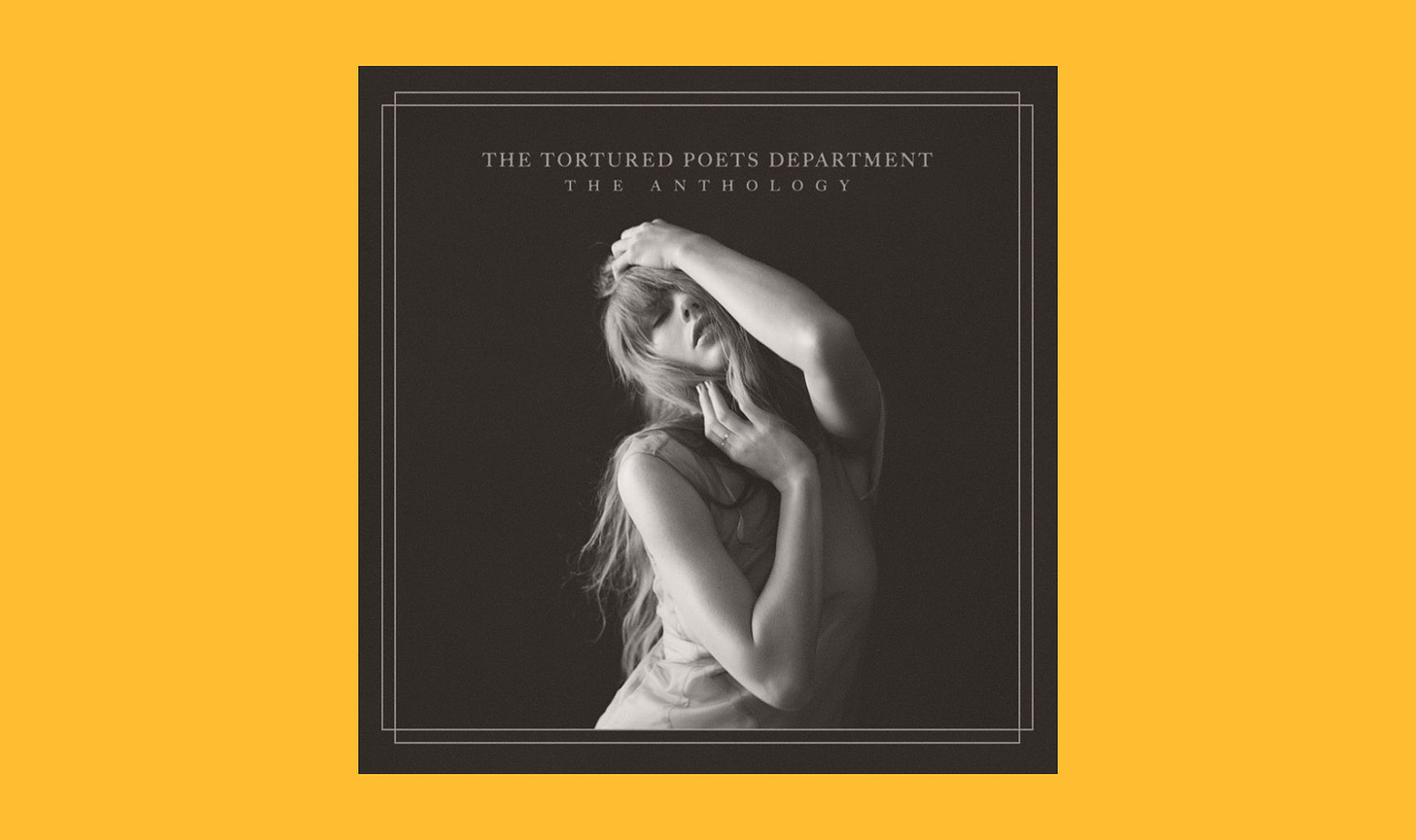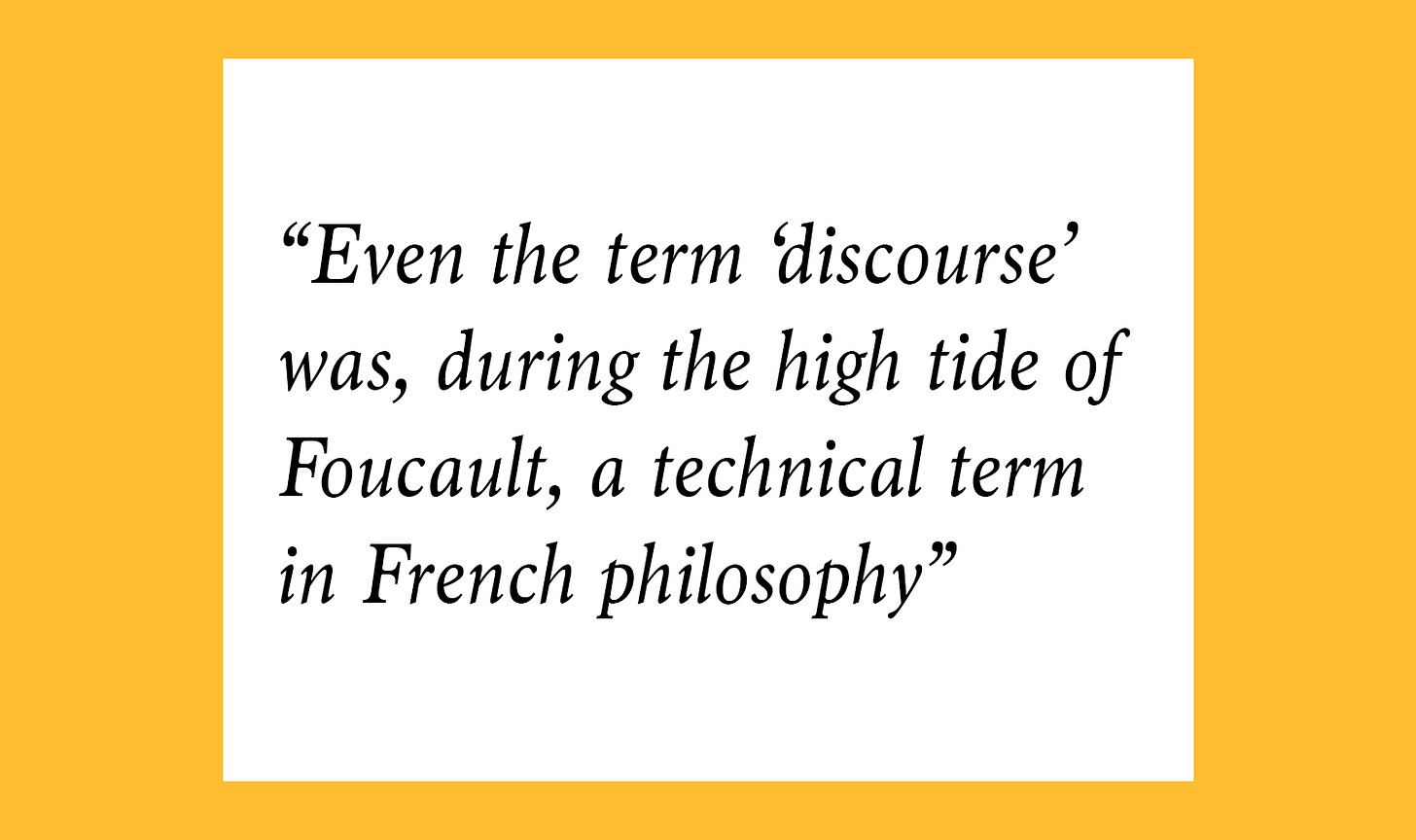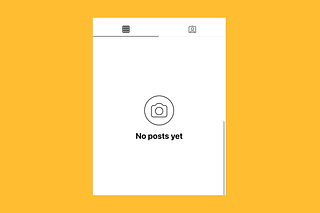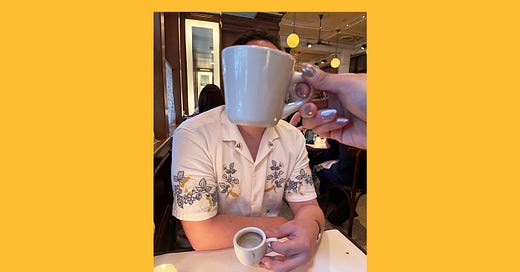

Discover more from One Thing
Kyle Chayka: Are you liking Taylor Swift in the right way? It may be harder than you think. The pop star’s latest album The Tortured Poets Department just came out, and it has occasioned a general debate not just about the music — whatever, it’s more Taylor, I liked Midnights more — but about how we consume music and what it means to be a fan. Can you like the music but not the persona, Slate asks? Should poets be against Swift for adopting the label, at least in a vibes context, of poetry? Do you need to know all the personal gossip to truly appreciate the album? There are no answers here. The word that comes up over and over again in regards to Swift is “gatekeeping”: the blockading or guarding of a piece of culture.
Gatekeeping is seen as a negative word. It conjures an image of a troll standing in front of the wooden gate of a bridge not allowing anyone to cross, or highway brigands trying to rob your wagon train. The gate is a barrier that is controlled by an external force that is often problematic. The word gets used on the internet a lot, but it refers to such a wide range of concepts that it has reached the point of meaninglessness. “Gatekeeping” can refer to a TikTok influencer not telling her commenters where she bought a specific dress, in the sense of “withholding information so as to retain exclusivity.” Or it can describe a publishing-house editor not acquiring a book or a record-label executive not signing a musician: They are “gatekeeping” access to cultural distribution. Or it could be about taste and fandom: You can “gate-keep” what you like from someone else if they don’t like it in the right way. If you have the wrong take on Taylor Swift, you’re not a real fan and might get rejected by Swifties.
The internet has always been praised for its lack of “gatekeepers.” Social networks and other digital platforms have enabled anyone to publish or share anything they want: No one is stopping you from posting a photo, song, or video. So instead of sheer access, gatekeeping has become a taste issue. If you don’t want everyone to like what you like, then you have to keep it from them. The urge to do so is understandable: Anything that becomes overexposed on the internet gets flattened into meaninglessness. If everyone on TikTok is into the same thing you are, then it’s unlikely to remain very meaningful to you. One good thing about gatekeeping, perhaps, in the sense of not allowing others to like what you like, is that you can maintain a closer relationship with the subject of your fandom yourself. We only gatekeep what we jealously love. (Taylor Swift seems uniquely capable of being loved both collectively and individually — her fandom is scalable.)
On the internet, everyone is a critic, and critics are gatekeepers, too. We are all hypothetical gatekeepers, capable of exercising our tastes, of shouting into the void about this film / song / book / painting we just found. And if you choose not to highlight or promote something, then someone else, somewhere, is just as likely to. Which you might think would make the act of gatekeeping okay and remove its negative connotation? Like, stating your preferences does not preclude anyone else from having their own, separate preferences. You can like things in different ways, contra the Swifties. One of the messages of this newsletter, and I think of our era, is that not everything needs to be for everyone. This is not a negative idea; it is constructive, because it means that things should find their dearest fans. A little bit of gatekeeping can aid in that process.
Nate Gallant: The critic as gatekeeper may offer another way to think about the cultural life of this term — that is, the bizarre life-cycle of theory-speak as it gradually filters through culture, becomes more pervasively commodified, and then somehow ends up in TikTok videos, because, "hot girls don't gate-keep from other hot girls."
This history is different from, say, the life of therapy-speak or tech-speak. Theory is not the exclusive origin for a term like gatekeeping. But gatekeeping as a metaphor for a certain power began within a very confined academic space. It was a term to discuss points of control for the flow of information. “Gatekeeping” was scarcely used before the 1980s, at least according to Google's digitized archive, and gained traction among early sociologists of information technology. It was not always bad — most often it was just used to identify at which points in a network and in what way information flow was filtered.
Eventually, it seems to have become a kind of shorthand for individuals who personified or reinforced the mechanisms of institutional discrimination in the very real social networks of workplaces, cultural institutions, and so on. Now, as Kyle describes, we've lost much of the analytic precision of the term with this particular semiotic drift, and there is near total synonymy between the implied power and control of a gatekeeper, and a personified, moral evil. Such is the lifecycle of words and culture. Not bad, just different, and generally, a bit more vague than before.
At some point I had an arm-chair sociological theory that it used to take about ten years for a concept to travel the distance from academia to popular media. A term would start somewhere on the margins of academia, often some widely cited methodological concept or politically incisive theoretical category shared across disciplines. Inevitably, it come to define one or a few scholar's careers — perhaps even a "school" of thought or a journal — and become hollowed out as an academically commodified concept to be forgotten or superceded, and sometime around then, become fodder for upmarket trade non-fiction or obscure social media conversation. Eventually, if it was buzzy or the moment was right, it might become mainstream enough to form a part of much more broadly mediatized conversation on TV, social media, or even more curiously, an object of the culture wars from the right. I think this was generally true, in admittedly very, very different ways, of words including intersectionality, queerness, and whatever is meant today by the composite concept of "critical race theory." Even the term "discourse" was, during the high tide of Foucault, a technical term in French philosophy before it became a weird twitter verb or just a general term for "the conversation" on a thing.
Again, just as with a subculture, a boutique, or anything else whose thingness appears to be predicated on its overexposure, this was always the fate of an idea as commodity, it just seems to happen nearly instantaneously in 2024, and thus presents a different challenge to anyone trying to think otherwise — as in, more slowly, or in conversation with a term's history. In the case of gatekeeping, the term has had perhaps a longer history than others, though its tail is odder and more pronounced. Perhaps its specific repurposing also obscures bigger problems of universality and consumption. When the object of commodification is a basic necessity, like food, water, shelter, and health care — as is done in America — we inevitably conflate a right to access with the right to purchase, and then, this logic slips all too easily towards art and language, as well. Should anyone really have the right to buy something? Consumption, too, has lost its analytic use-value. Likely "commodification" too.
This is all, admittedly, quite speculative. I am hedging. Gatekeeping my own thoughts, partly because I am not a particularly patient historian, but also because I did not hate the new Taylor Swift album and don't want Kyle or the Swifties to come for me. By using the figure of the tortured aesthete as one of mockery, rather than the supposed quasi-spiritual martyrdom of artistry, The Tortured Poets Department did not hide behind the biggest gate an artist can use to shield the import and origin of their work. The album is, if anything, a messy act of revelation: The gates of the Taylor cinematic universe are wide open to anyone with a Spotify subscription, which on the first day of its release, was enjoyed by however many 300 million discrete listens amounts to in humans being, myself included. Still, as I will not be alone is suggesting, and not only about this album, a few more things should have remained in the vault, kept back behind a literal gate. Gates can be useful, but we might need new language to think about them. Swift is a fan of elaborate metaphors; maybe there’s one on the album?
Best of One Thing
If you’re a new subscriber, look back through the archives for our greatest hits. We send out short newsletters on taste, authenticity, and recommendation culture every Tuesday and Thursday (plus some extras).
The disappearing Insta grid Why we don’t like posting to Instagram’s main feed anymore.
A great wool shirt Reviewing the one brand of shirt that’s everywhere on the island of Victoria, British Columbia.
Why did we stop saying “hipster”? On the end of 2000s-era individuality on the internet.
Seeds are the new streetwear On heritage plants getting the same kind of ecommerce hype as fashion.
Does subculture still exist? A debate over the survival of niche culture when every trend goes viral instantly.
Subscribe to One Thing
A catalogue of authenticity

















I wrote something in the same vein for my email earlier. Mistaking exposure and sharing for intimacy; "connections" with relationships, the world feels intimacy-less right now, lacking space for vulnerability. The immediacy and ease of access to information raises our demand to Veruca Salt "I want it now" level: we expect access, we expect details without working, putting effort in, for it. And we also display ourselves without boundaries, too: to constantly share our lives is the norm. But that leads to a hyper-awareness of how one's constantly read and, because the internet is the most empathetic space, causes self-censorship via self-commodification, crafting a perfectly curated/branded self as armor against avoid negative exposure. It shuts people down from being vulnerable and letting their guards down, thereby blocking any chance of finding intimate connection, from deeper relationships that result in things like "biodiverse" subcultures. Gate keeping can be an effort to salvage these sorts of relationships.
"The Other Side of Gate-Keeping
Viewed one-dimensionally, the other concept that requires clarification is gate-keeping. Only seen to be a fence, its hinge is forgotten. A gate is the passage between interior and exterior, from one space to another, private to public, mine to another's. It is both about keeping out and allowing in. The current conception of “gate-keeping” is exclusionary, cast aside its ability of letting people in. It is just as much about blocking someone’s presence as cautiously permitting entry. Whereas a fence is defensive, a gate is where defensiveness can fall — where trust is tested. Gate-keeping is yes about exclusion — you can’t sit with us — but also the process of self-protection, of deciding who enters your “home,” where you let your guard down. Selective in either instance, one establishing a hierarchy and the other an intimate gesture — exposing one’s vulnerabilities and potential weaknesses. A gate is an architectural reminder that you’re entering private grounds, sacred space. In an era where we constantly share our lives, gatekeeping can facilitate calm and intimacy, where one can make mistakes and embody eccentricities without worrying about others’ eager eyes, their judgements. Stepping through the threshold via a gate is a reminder that someone else’s world is precious, not to be publicized on your terms — you’re in their home. This second dimension, the empathetic cousin of privacy, deserves recognition, as well."
I love that you are exploring gatekeeping. I agree with Gray, below, that gatekeeping and intimacy are related. But what of the consumer who unearths an underground band who must decide which is paramount: their savored, hoarded knowledge or the pocketbook of the band. The ethical enthusiast supports the popularity of the artist (shouts it from the mountain tops.) When economics are removed from the equation, gatekeeping becomes a most holy thing. From the sacred "don't kiss and tell" to the premise of Fight Club.